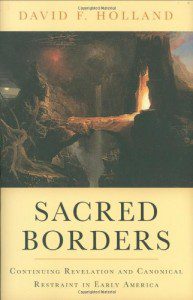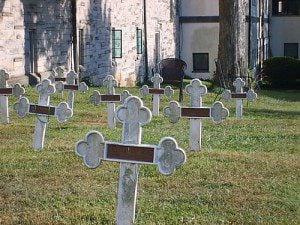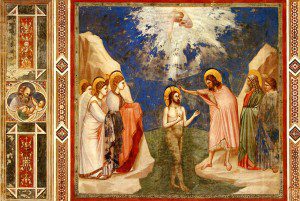Until recent decades at least, nearly all Americans have believed in an unchanging God, “the same yesterday, today and forever.” If God does not change, does God’s manner and rate of revelation change over time? Typically, those who have wrestled with the issue of canon in the history of American religion have made only crude differentiation among different groups. In colonial America, there were the Quakers and nearly everyone else. In antebellum America, things became a bit more complex, but... Read more
















